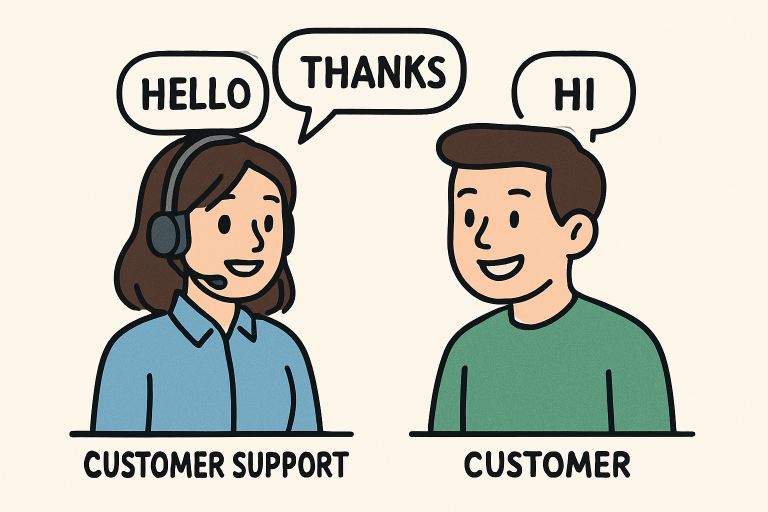Delivering outstanding customer service is no longer a differentiator—it’s a necessity for businesses that want to maintain their competitive edge. At the core of customer loyalty and sustained growth is the ability to communicate effectively and meaningfully with customers. By focusing on communication, companies are better equipped to meet expectations, solve issues promptly, and foster strong, loyal relationships.
Today, businesses of all sizes—and across all sectors—are relying on strategic solutions, such as contact center outsourcing, to ensure that customer conversations remain open, transparent, and positive.
Effective communication in customer care is about far more than answering questions; it is the basis for trust, repeat business, and long-term advocacy. Customers who experience truly excellent care become brand ambassadors, spreading positive word of mouth and helping companies grow naturally. Organizations prioritizing communication find that customers are more willing to share feedback, forgive occasional errors, and feel a stronger connection to the brand as a whole.
What sets world-class organizations apart is their commitment to each step in the customer journey. Exceptional service is not achieved through sporadic effort—it’s a continuous, strategic pursuit. By instilling effective communication practices at every interaction, businesses create satisfied customers who drive their reputation and revenue.
Especially in industries where needs are complex or concern is high, stellar customer communication is essential. Whether helping someone navigate a tech issue or responding to sensitive health questions, every conversation is an opportunity to reaffirm reliability and care. These moments matter, not just for individual outcomes but for a company’s overall success.

The Importance of Effective Communication
Effective communication lies at the heart of superior customer service. It ensures that customers’ voices are truly heard and their issues are accurately resolved. Research published by Harvard Business Review underscores that organizations demonstrating strong communication competence enjoy higher loyalty rates and generate more positive customer experiences.
In fact, a well-structured communication strategy can create a virtuous cycle—satisfied customers are more likely to remain loyal, provide repeat business, and serve as advocates in the marketplace.
Active Listening: The Foundation of Understanding
Active listening is more than just hearing; it’s a central tenet of effective customer relations and organizational success. By fully concentrating on the customer’s words, confirming understanding, and responding appropriately, businesses can defuse frustration and build trust. In healthcare, for example, active listening has been shown to significantly enhance patient satisfaction, according to insights from the National Institutes of Health. The benefits of active listening include improved morale, greater insight into customer needs, and the opportunity to provide value-adding solutions.
Clear Language: Avoiding Misunderstandings
Miscommunication is one of the fastest ways to lose customer confidence and trigger dissatisfaction. Using simple, concise, and jargon-free language ensures your messaging is accessible to everyone, regardless of their technical expertise.
This clarity is crucial in sectors such as finance or healthcare, where precision is non-negotiable. By communicating in a way that prioritizes customer understanding, businesses limit confusion, reduce escalations, and maximize every touchpoint.
Empathy: Connecting on a Human Level
Empathy sits at the core of authentic customer relations, enabling representatives to see beyond the transaction and form genuine emotional connections. Addressing a customer’s underlying feelings and anxieties—with patience and understanding—can transform a potential conflict into an opportunity for deeper engagement. According to Psychology Today, consumers are much more satisfied when they feel genuinely understood and valued during their support experiences.
Leveraging Technology for Enhanced Communication
Advanced technology platforms are revolutionizing the way businesses stay connected with their customers. From CRM systems that store conversation histories to AI-powered chatbots capable of handling common queries around the clock, technology enables agility and personalization at scale.
Digital touchpoints—like SMS, live chat, and video support—ensure customers find help whenever and wherever they need it. Notably, real-time feedback tools empower service teams to pivot quickly and stay attuned to evolving expectations, keeping communication lines open and responsive.
Training and Empowering Staff
Even the best technology won’t replace the need for well-trained, empowered employees. Ongoing training in listening skills, conflict resolution, empathy, and product knowledge enables customer service teams to handle any situation with confidence.
Companies that cultivate a culture of communication encourage employees to provide thoughtful, solution-oriented responses and celebrate initiative. Empowered staff are more motivated, feel greater ownership, and deliver the kind of service that truly distinguishes a brand.
Measuring Success: Customer Feedback and Continuous Improvement
Constant improvement stems from actively soliciting, reviewing, and acting on customer feedback. Modern businesses regularly deploy surveys, social listening, and sentiment analysis to capture real-world insights into service quality.
By making adjustments based on this feedback, organizations demonstrate that they value customer opinions and are willing to innovate for the sake of providing better experiences. Over time, these incremental improvements can have a powerful impact on satisfaction and retention rates.
Conclusion
Customer care excellence demands a holistic approach to communication at every level of the organization. By consistently implementing active listening, using straightforward language, demonstrating genuine empathy, and leveraging technology, companies can set themselves up for lasting success.
With dedicated training, empowered staff, and a commitment to continuous improvement, strong customer relationships follow naturally—fueling loyalty, advocacy, and sustainable business growth.
